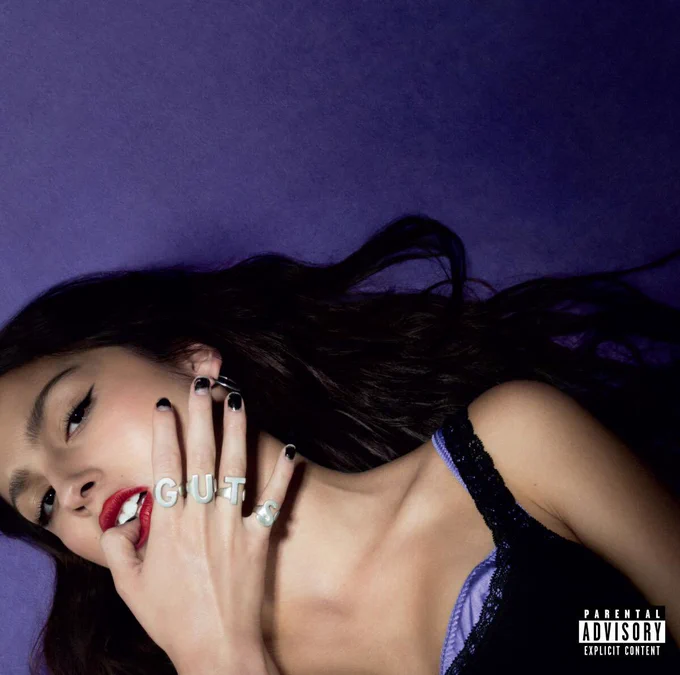On Friday, Sept. 8, Olivia Rodrigo released her sophomore album “GUTS.” It follows her chart-breaking debut album “SOUR,” which resulted in seven Grammy nominations and three wins.
Her follow-up album is a wiser and more insightful version of her previous works, and since Rodrigo is similar in age to college students, I found it personally relatable. From listening to “drivers license” only a year after getting my license and “brutal” about the disillusionment of being a teenager, her original album was full of relatable songs about adolescence, but “GUTS” moves on from adolescence to the beginning of adulthood.
Rodrigo started her career in the spotlight as an actress. She became known for her role on Disney Channel’s “Bizaardvark” in 2016 and then “High School Musical: The Musical: The Series” in 2019. During her run on the latter, she gained rapid success when she released her single “drivers license” in January 2021, which became the top-streamed song of 2021 with over a billion streams.
She followed up her success with two more singles — “deja vu” and “good 4 u” — and released her debut album in May 2021. Now, over two years since her last album, she has released “GUTS.”
She released the first single off the 12-song album, “vampire,” on June 30, and it currently has over 300 million streams on Spotify. The piano drives the beginning of the song, but it quickly erupts into drums and strings.
“bad idea right?” — her second single released off the album on Aug. 11 — quickly shifts the tones of the album from melancholic to pop rock. Similarly, “ballad of a homeschooled girl,” “get him back!” and “love is embarrassing” follow the same theme. The songs are interspersed throughout the album, so if the album is listened to in order, the genre jumps back and forth throughout listening while still having a similar tone.
“all-american b*tch” — the opener for the album — is probably the most unique song off the entire album. It starts with light guitar strings and opens with “I am light as a feather, I’m as stiff as a board.” The first minute of the song continues in a similar lilting style, but the chorus quickly dissolves into a rock song with lines like “Forgive and I forget / I know my age, and I act like it” before switching back to the opening style for the next verse.
The juxtaposition of the instruments and their dynamics highlight how society expects women and girls to act versus what is actually true. Lyrics such as “I don’t get angry when I’m pissed / I’m the eternal optimist” show the struggle of having to be seen as calm and collected when things are actually wrong while also always coming across as happy. The song ends with the almost exasperated lyric “I’m pretty when I cry.”
In similar fashion to her last album, Rodrigo doesn’t leave out the sad and introspective songs. “lacy,” “making the bed,” “logical,” “the grudge” and “pretty isn’t pretty” all have pensive themes. In “the grudge,” lyrics like “And I know, in my heart, hurt people hurt people / And we both drew blood, but, man, those cuts were never equal” show a more two-sided perspective of love while still acknowledging the pain, which was not always present in Rodrigo’s first album.
Rodrigo finishes her album by closing the chapter of her teenage years with “teenage dream.” The majority of the song is questions that she asks throughout, emphasizing that she still does not have everything figured out. One of the most poignant questions is “Will I spend all the rest of my years wishing I could go back?”
Overall, Rodrigo spilled her guts when making the album, which resulted in a thoughtful musical work that highlights the harsh realities of love and growing up in the 21st century.






































































































































































































